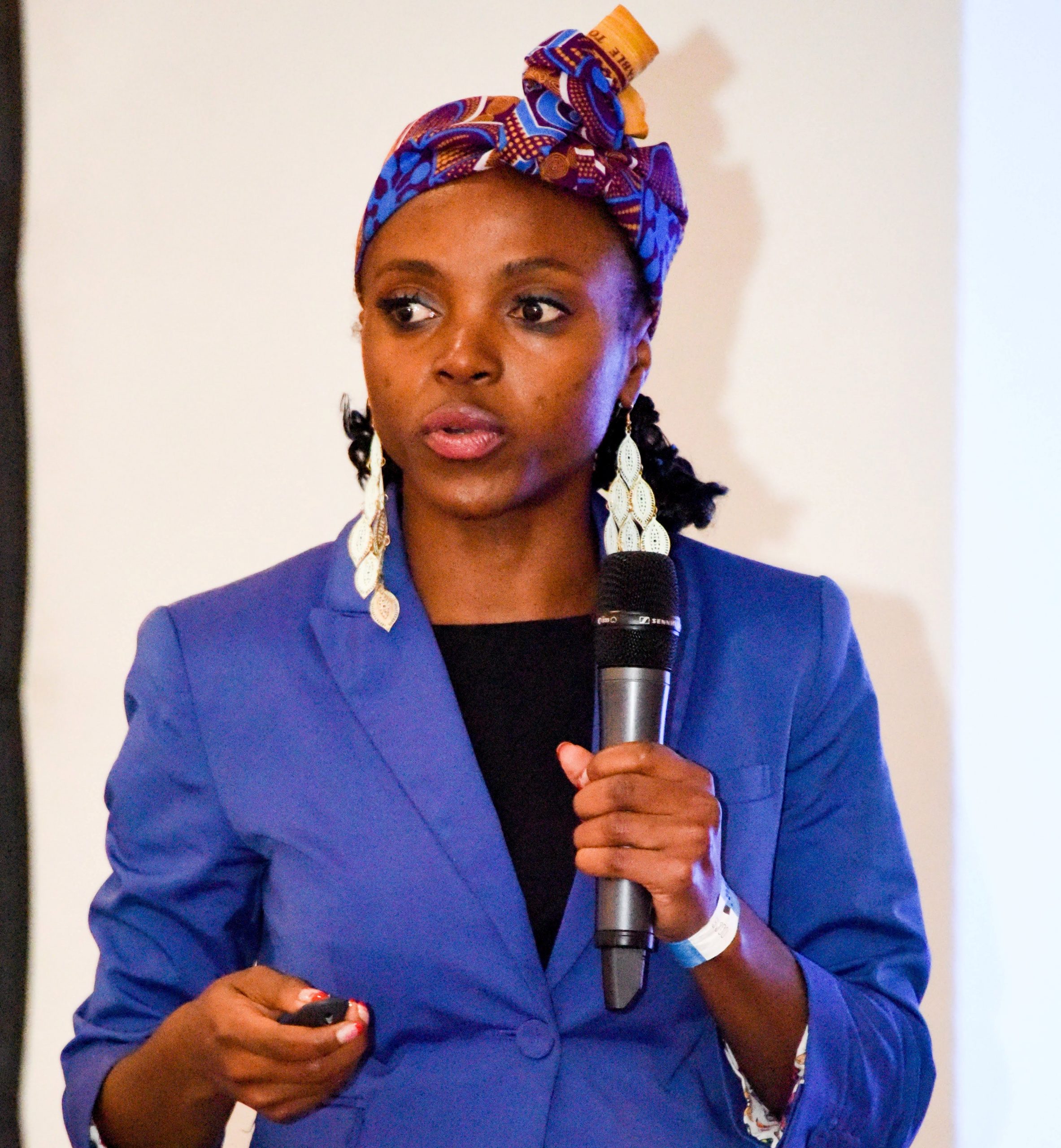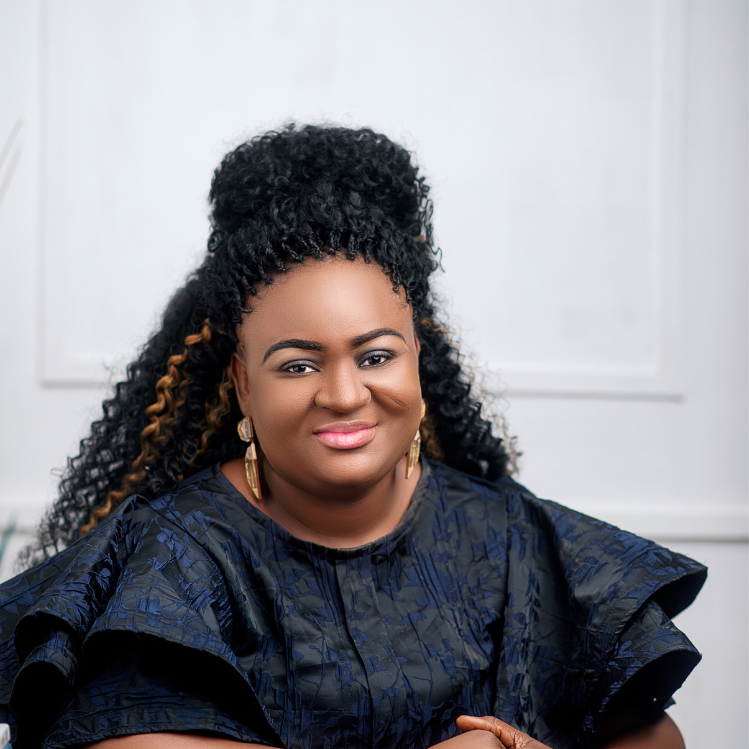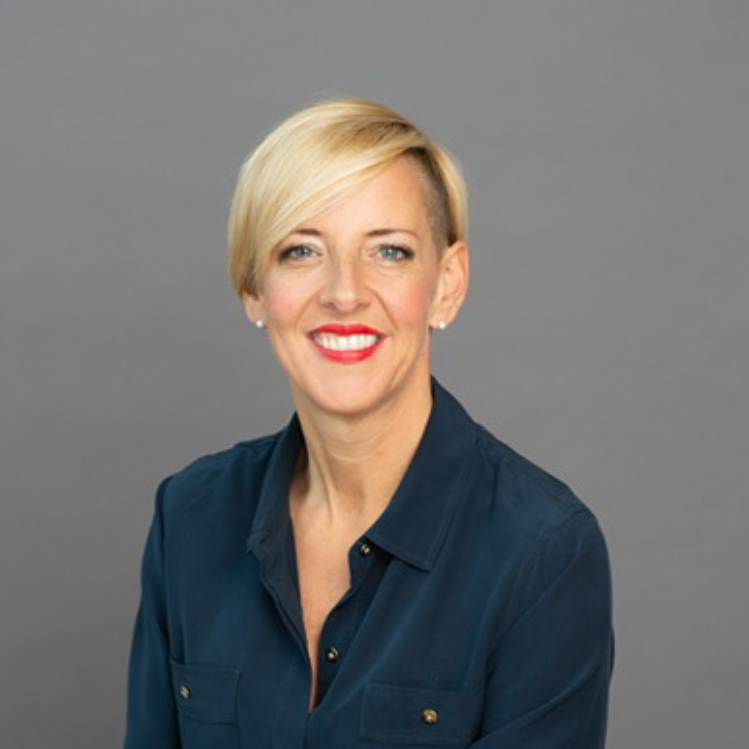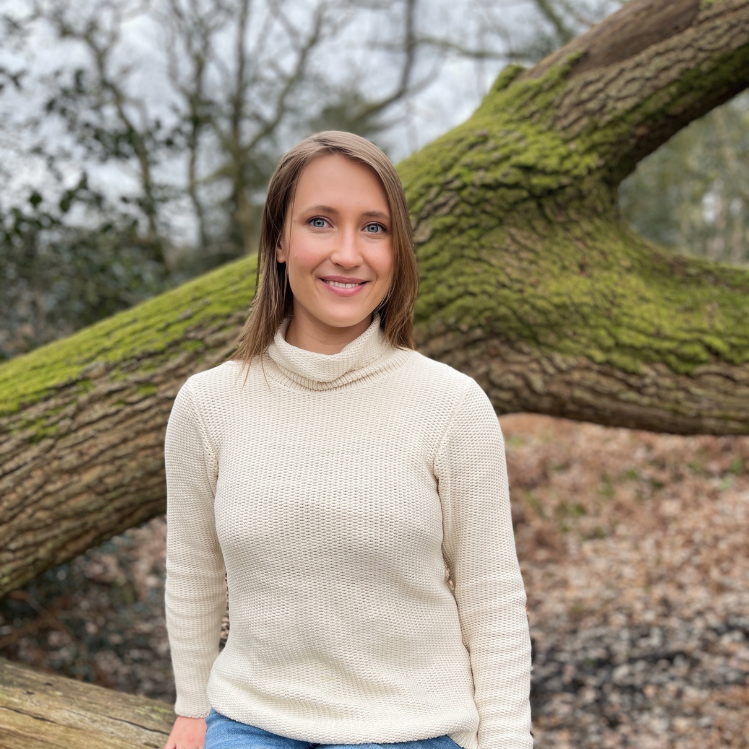
Sharing my messages with the world, after a courageous battle with uterine Myoma-tumors
Elisabeth Mberg -Sharing my messages with the world, after a courageous battle with uterine Myoma-tumors
By Gulia Lucci
Elisabeth Mberg was born in Cameroon, where she also grew up. She came to Germany for her studies, became an engineer with a background in mechanical engineering and 10 years of experience within project management, operations management and supervision. Her journey to this career wasn’t straightforward, as she suffered from major health problems all along. She was diagnosed with severe uterine Myoma also commonly known as Fibroid at 20 years old in 2003. Fibroids are growths, firm tumors of the uterus containing smooth muscle cells and connective tissue in the womb. They can be the size of a lemon or even the size of a grapefruit. Heavy periods, large blood clots, period pain, pelvic mass pain, digestive issues, painful sex and anemia are the primary symptoms. The Fibroid disease is such a confusing and serious epidemic especially among black women. Myomas affect up to 80% of women by age 50 and typically African women earlier and more severely than others. Before that, no one ever told her about this disease although many young women in Africa get their uterus removed because they get told that there is no cure. She spent years trying to find anything that helps her Fibroids. That is why she decides to carry out a fundraising project called (END)ofMYOMALife to raise more awareness, to offer more preventative education and keep away this disease for all the future generations. She wants to help young women especially in Africa to reach their goals towards Fibroids. Uterine Myoma is associated with chronic pain, and there is still lack of awareness. Despite all of this, she keeps thinking that together we can fight and transform the Myomas (Fibroids) into power.
[rml_read_more]
Tell us more about your childhood and early life in Cameroon?
My parents were strict with my education and overly protective. Let’s say they were wonderfully imperfect and did an excellent job. We were not rich, and they indeed work so hard for me and my brothers to have an education. I remember having a peaceful childhood in Cameroon, time has passed by, yet I think I never changed looking back I have the feeling that I see the world from an entirely different perspective but nothing much has changed I am the same girl…I just look old enough coming from a lot and may be sexy too lol. Seriously, I’ve always been that kind of person who was strangely very calm; not confident on the outside but inside much stronger. It’s funny but sometimes I tend to look back at old photos to remember when all these pretty and popular girls of my generation at school were telling me stories about all the things they did like going out to parties and me spending hours of looking for arguments to convince my parents to let me go to these parties as well. They never said yes. Anyway I have no idea how it would’ve been if they had once let me go there. I guess I will still be who I am now. Honestly, I always wanted to win especially for my parents, I wanted to make them proud, for me it was like I have scripts to follow lol.
Thank goodness hard work and sacrifices paid off. I got my degree, became an engineer and was able to sponsor my brothers to come in Germany to continue their studies.
Back to my childhood, I still remembered especially how I got my first period after a surgery and at the time I had never heard of menstruation just like I never heard of fibroids before although my mother suffered for years from this serious disease. I couldn’t understand what was happening to me. I never heard of something like periods that before and the funniest thing is my mother then sent me to another woman to let her explained me what I was having. This was really weird uncomfortable. And I assume many African young girls can relate to this kind of story. We’re trained to keep quiet when it comes to issues with the reproductive system and on the other hand, getting in your thirties you will somehow be valued according to your reproductive capabilities. Maybe this explains why many African women don’t feel fulfilled if they don’t have their own children; perhaps this is why fibroids are stigma. How ridiculous is that then? I just remember being a young girl, knowing there were more behind all these mysteries. And then I grew up, came to Germany for my studies and everything started to go wrong with my body. What I didn’t know was how it was affecting me spiritually, mentally and physically. I got to learn all that through a whole lot of ups and downs during my fibroid journey. Ironically, best and worst experience of my life.

You spent years trying to find anything that helps your Fibroids, went through hormonal treatments, infertility treatment, 3 open surgeries and more. This must have been a painful journey for you. Who was your biggest supporter all along?
My big supporter has always been my mother; even if we had different ways of seeing things she was always there for emotional support, love and encouragement. She use to send me all kind of herbal medicine from Cameroon to Germany to help me shrink my fibroids. Together we have tried many options, but nothing worked and the fibroids kept coming back. Life was super hard in a lot of ways for her, but she would never complain. So much of what’s good in my life stems from her and her influence. Without her, my career, the person I am today, none of this would have been even possible. One day she was so sick I thought that she was going to die. She called me and my brothers in the room to say goodbye. Only years after would she tell me that she had a full hysterectomy (surgical removal of the uterus, cervix, fallopian tubes and ovaries). I could never forget that day. It took me a while to realize how fibroids have impacted her own life. Secretly I am doing this campaign for her too – now the secret is out! Laugh
Tell us more about your work in Africa and what you are doing to help women there?
People are becoming more aware about fibroids which is encouraging but I think African women are still left behind despite large numbers of them being affected by fibroids.
Many women dealing with fibroids find it difficult to obtain adequate information and when they find help, the only offer they get is the surgical removal of the uterus (hysterectomy) no matter how old the patient is. This is just insane! I want to help stop that by donating free natural fibroid healthcare package to women living with fibroids. I don’t have the full understanding of why African women are mostly affected with fibroid. That does not mean we have to settle. It means we should try some natural ways like avoiding foods that may trigger the growth of fibroids and the best way to fight them is to try these options at a young age. I founded a campaign “LivingFibroidLife”on the fundraising GoFundMe platform to raise money and provide support to women who are suffering from fibroids. I am still designing the fundraising plan based on which country I should first start, what I should do next and what I can offer, as well as where to find people that can help me on this journey (healthcare professionals, local organizers). In the same way, I have been thinking of this project since 3 years so I want to share with you my first thoughts on how your donated money will be used to bring good results and enhancing young women’s lifestyle habits for a healthier future without fibroids.
Why raising funds, what can we do and where do I begin? Let’s talk about “LivingFibroidLife”: Through this campaign I want to:
✅Enable a safe place where young women can learn the specifics about fibroids
✅ Offer education sessions with health care professionals to young women with fibroids
✅ Offer proper medication approaches that include dietary changes, herbs, supplements and more…
✅ Offer education sessions to support a wide range of reproductive health and potential risks of having
fibroids, what the consequences of an under-managed or undiagnosed state of fibroids are
✅ Encourage women/girls/mothers to talk early about this disease and to keep up a sexual and reproductive health plan
✅ Help and support young women to make the right choices and advocate for their choices
Your background is in mechanical engineering. How are you trying to educate women there to prevent fibroids?
Regardless of the stigma related to fibroids in Africa, so many women wrongly approach fibroids as a mystical issue. In fact, it is really important for me that these women get the right information and support to help them through their fibroid journey and beyond. I currently use different platforms to share my story about fibroids and I want to encourage women to share their stories as well so the funding for studies and research on fibroids can be increased. Sure I am targeting an audience who is currently suffering from fibroids, but the aim is to really give it some power to influence. I am mostly targeting an audience who is yet to be diagnosed with fibroids: the young generation. We can keep the future generation away from this disease via educational resources and help them understand the risks, factors, signs, symptoms, and treatment options. My campaign “LivingFibroidLife” was founded on the mission to empower communities in Africa to feel strong, confident and ready to take on any challenge with fibroids. I want also to be more proactive and create a YouTube channel so I can get quickly in touch with people who fit the criteria for the campaign. When you have fibroids, It is important to have good advice, meds and symptoms management, practical help is essential. I experienced that taking green tea supplements to support the body naturally has helped keep my body defenses working optimally. I have been consuming “Tigovit” – a green tea product – for 1 year now and it really helps me a lot to alleviate my fibroid symptoms and feel better. Hence, I am incredibly lucky to have a wonderful woman Tanya Hohenester who is the founder of Tigovit and she supports my campaign in so many different ways. There are many options of “medicine” to avoid the hysterectomy and I want women to become more aware of that. Regular exercising, changing my diet and supplementing with green tea extract daily improved symptoms like heavy bleeding, chronic fatigue including anxiety and exhaustion just after 6 months. And my symptoms continue to decline to this day. This is why I want to use the money raised to donate Tigovit care package to women suffering from fibroids lacking health care whilst raising awareness as well. I am pretty sure that this green tea product can also help women live with the less impact of fibroids. Everyone who donated will be mentioned on my website (in preparation) to say thank you. Further information and links to donate are on my Facebook and Gofundme page. I’d appreciate if you visit my pages and share to support my campaign.
What do you see as the major issues women in Africa are facing nowadays?
I believe uterine fibroids is among the most pressing, silent health problems women in Africa are facing. Fibroids not only affect our health, but also related to factors like job pressure, mental health and relationships. Many women went through the infertile path because of fibroids with all the mental side effects and all this ruined their life because they didn’t have any support (Which is another story in itself). Because fibroids are also the most likely to lead to pregnancy and fertility problems, I remember my mother telling me that if I would have entered into a relationship, I will have surely got pregnant. Today I don’t have to regret anything, since I refused to follow her advice. She didn’t tell me that once but many times, and this shows how she herself believes deeply in what she was saying. She didn’t want me to feel hurt, it was just a friendly reminder. This behavior makes me think that fibroid is one of the major contributing causes of social abuse in Africa. Let me explain why?
As soon as young girls get diagnosed with fibroids, they will just desperately do everything to get pregnant. They don’t care how negatively such behavior can impact their life. The shame of ending childless is the biggest reason why women don’t say anything and more often the society will always find ways to customize your shame and make you believe you are the problem. You are the problem, if you have fibroids then have babies too young and not ready. You are the problem if you first want to complete your education, make a career and then have children later. You are the problem if later you still suffer from fibroids and refuse to do the hysterectomy because you want kids. You are the problem when you wait for too long and you deserve to be punished with infertility. We can’t help prevent all these decisions taken out of fear, women need to learn how to equip their body to combat fibroids and not be trapped in this fibroid – huge physiological stress cycle. Providing safety, hope and empowerment services to women can help make a difference.

What are your key messages to our readers?
In my pain-infused infertility journey, I experienced anger, sadness and withdrawal. I began to hate myself for being like that, and I remembered arguing with my mother on the phone one day. She was pushing me to have the hysterectomy, saying something to me that definitely changed everything. She said these words: “I know many young girls dealing with fibroids here in Cameroon who are not even 25 years old and will give everything to have their uterus removed but they can’t afford this surgery. You have in Germany doctors even begging you to go through this surgery and you still say no. You are very ungrateful and you will regret it.” This phone call will lately have a huge impact to why I decided to share my story. I’d spent years trying to get pregnant and it was a trauma, but after this phone call my pain vanished! I felt sad only for these young ladies losing their uterus at such a young age because they get told that there is no other option.
When we share our stories, we plant seeds of hope. Many women dealing with fibroids are grieving in silence. Sharing our stories can help end the isolation, judgment, shame and stigma. It’s the just the first step of a long healing process but you will get better.
We live in a society where being sick equals being weak. Fortunately, the Global Woman Club platform allows me to speak loud about my battle with fibroids and show to all sufferers that they are not weak. Fibroids are awful, but you are much stronger than this disease. Fibroid is nothing to be ashamed of, so never underestimate your story which can change the life of one person. To women who have fibroids; knowing that you have these monsters growing in you can be very confusing, especially at a very young age but please don’t give up, find out where you need support and turn to one of these for help. That it’s definitely easier said than done: I can’t immediately take your pain away. However, I had the most severe symptoms with fibroids and still fight them: if I got this, so do you.
What are your goals for the future?
I want to ensure that women currently suffering from fibroids in Africa also have access to fibroids information, create fibroid groups and events to enable these women to share their stories and help each other. Most importantly, I want to inspire and encourage especially young women to fight and advocate to do what’s best for them to receive the right treatment.
My dream is to have a helpline where women can call if they would like support and information and to offer an online support (forum) for sufferers, moderated by volunteers who have also suffered from fibroids. There, women could ask questions, learn to understand the symptoms that come with fibroids that they may be thought only them were going through. They should know that they aren’t alone and instead be inspired to help others.
I suffered extremely badly with fibroids. Looking back, I wish I had something like this in Cameroon or Germany. Fibroid is definitely something that needs more awareness.
I am still looking for a solid and professional health organization to coordinate this campaign, which I am yet to arrange, but I am determined to make it a great one.
Thank you for the interview, it was nice to look back and see where I started and how much I have grown.





